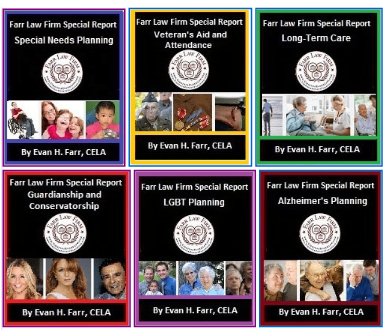Is Alzheimer's Contagious?
If you cannot view the image below, please read the article on our blog.

There are currently 5.2 million Americans who suffer from Alzheimer’s, and the number is expected to triple by 2050. It has long been believed that Alzheimer's is caused only by age and genetics, but new research says person-to-person transmission of the protein that causes Alzheimer's may be a possibility.
So, does that mean that Alzheimer's is contagious? According to Scientific American magazine, Alzheimer's isn't exactly contagious. However, a protein that goes on to form the disease could pass to patients during surgery, meaning there could be an
acquired form of the disease, a new study finds. The study, published in the journal Nature, is the first to suggest that the degenerative neurological disease can be spread between humans.
To explore the question of human transmission, John Collinge, a neuroscientist at University College London and his colleagues, studied the brains of eight people, 36 to 51, who died of Creutzfeldt-Jakob Disease (a rare disease with symptoms similar to Alzheimer's, but the symptoms appear more rapidly). These were the findings:
- Alzheimer’s isn’t contagious in the same way that colds are, but its proteins may be passed between people under certain circumstances.
- Accidental exposure to prions, or “proteinaceous infectious particles,” by way of a contaminated hormone treatment the people in the study were given, increased the production of the protein that causes Alzheimer's in their bodies. (Note: the treatment, using human-derived hormones, is no longer used due to the risk of contamination.)
- None of the participants had any history of Alzheimer's in their family, and they were all young (36-51).
- Of the eight patients tested, four had significant deposits of the Alzheimer's protein. Only one patient showed no sign of the protein. The researchers suggest that had the patients not died young, they would have developed Alzheimer's disease later in life.
- Alzheimer's proteins have been found to stick avidly to metal surfaces of surgical instruments and are resistant to typical sterilization methods. Studies are now needed into whether other procedures, such as blood transfusions and the repeated use of surgical instruments, pose a risk.
Collinge emphasized that he "doesn't think we need to worry excessively." According to Collinge, "this is an observational study, that, alone, does not suffice to prove that the Alzheimer’s disease process can be induced in one individual through contact with another’s brain tissue."
More Research is Needed
Another prominent Alzheimer’s researcher, John Trojanowski of the University of Pennsylvania (my alma mater), who was not involved in the study, asserted that Collinge's research does not provide a clear answer about whether Alzheimer’s pathology can spread between humans. He believes that the study will “generate more confused thinking and stoke unreasonable concerns by the public about the infectivity of Alzheimer’s," which he thinks
"does not help the field of AD research.” He points to the small size of the study and the fact that the subjects did not show other signs of Alzheimer’s. According to Trojanowski, "studies show that Alzheimer's proteins begin to deposit as early as the second and third decade of life, which means the subjects could merely have aging-related deposition of Alzheimer's proteins.” Other researchers, however, found the study to be an important contribution to
Alzheimer's research that should be further explored, and that the research "may be a first step toward answering the question of whether human-to-human transmission of pathological proteins is possible."
To read more about the study and its findings, see the articles: "Study finds seeds of Alzheimer's may have spread in medical procedure" in Reuters, "First Evidence that Alzheimer’s Proteins May Have Passed from Person to Person," in Time and "Can you Catch Alzheimer's?" in Popular Science.
Medicaid Planning for Alzheimer’s and Other Types of Dementia
Alzheimer’s is the biggest health and social care challenge of our generation, and a diagnosis of the disease is life-changing. When it comes to planning for long-term care needs, generally, the earlier someone with dementia plans, the better. But it is never too late to begin the process of Long-term Care Planning, also called Lifecare Planning and Medicaid Asset Protection Planning.
Medicaid planning can be initiated by an adult child acting as agent under a properly-drafted Power of Attorney, even if your loved one is already in a nursing home or receiving other long-term care.
Medicaid Asset Protection
Do you have a loved one who is suffering from Alzheimer’s or any other type of dementia? Persons with dementia and their families face special legal and financial needs. At The Law Firm of Evan H. Farr, P.C., we are dedicated to easing the financial and emotional burden on those suffering from dementia and their loved ones. We help protect the family’s hard-earned assets while maintaining your loved one’s comfort, dignity, and quality of life by ensuring eligibility
for critical government benefits such as Medicaid and Veterans Aid and Attendance. Please call us as soon as possible to make an appointment for a no-cost consultation:
Fairfax Alzheimer's Planning: 703-691-1888
Fredericksburg Alzheimer's Planning: 540-479-1435
Rockville Alzheimer's Planning: 301-519-8041
DC Alzheimer's Planning: 202-587-2797
--------
Sign up for our FREE Special Reports and get the answers to your burning questions! Just click on a cover below!

|
| Special Offer |
We’re Giving Away My Best-Selling Books – Click Here to Find out Why and to Get Your Free Copies |
|
|
| |
| Find Us |
|
|
| Upcoming Events |
|
Our upcoming Living Trust Plus: How to Protect Your Assets from the Expenses of Probate and Long Term Care seminar is on October 10 or November 21 in Fairfax.
----------
|
Article Reprint Authorization
|
We invite you to reprint our articles to bring helpful content to your readers, with the following guidelines:
-The article is to be printed in its entirety;
-Additions, deletions, or changes in the text, title or illustrations may not be made;
-Credit is given to The Law Firm of Evan H. Farr, P.C., as the original source.
Example:
Source: Reprinted from The Law Firm of Evan H. Farr, P.C. Newsletter (www.FarrLawFirm.com). |
|
Mailing Address
|
Fairfax:
10640 Main Street
Suite 200
Fairfax, VA 22030
703-691-1888
Fredericksburg:
511 Westwood Office Park
Fredericksburg, VA 22401
540-479-1435
Rockville, MD:
1 Research Court
Suite 450
Rockville MD 20850
301-519-8041
Washington, DC:
1425 K Street, NW
Suite 350
Washington, DC 20005
202-587-2797
|
|

